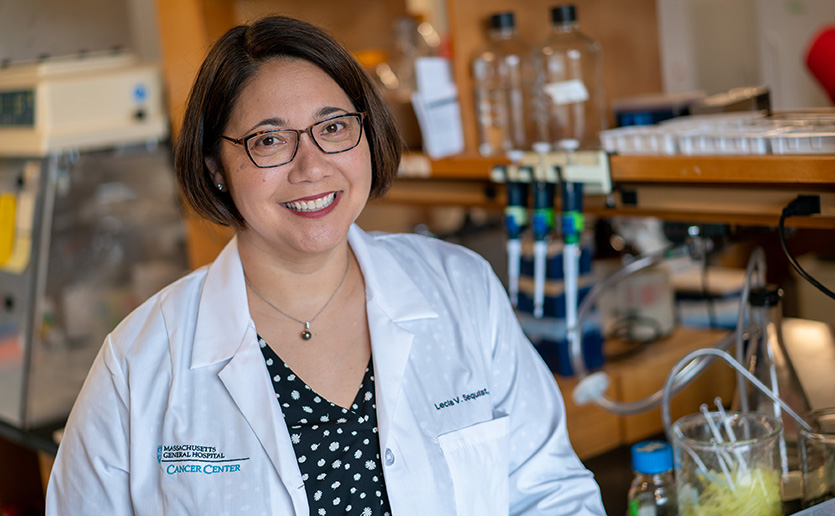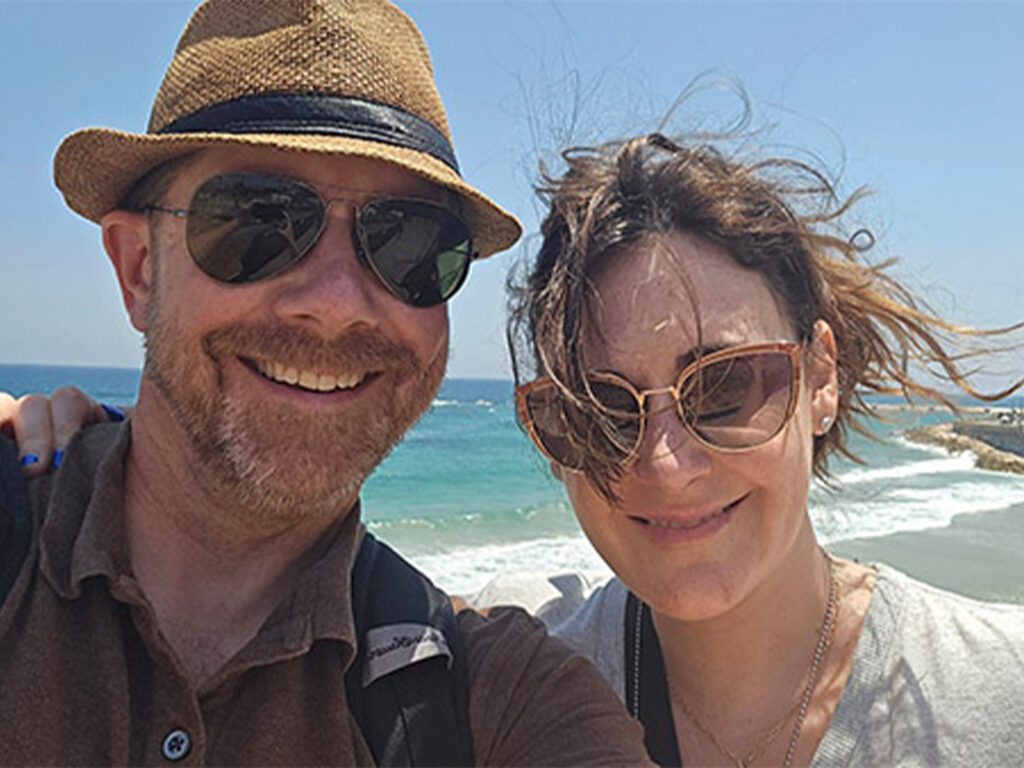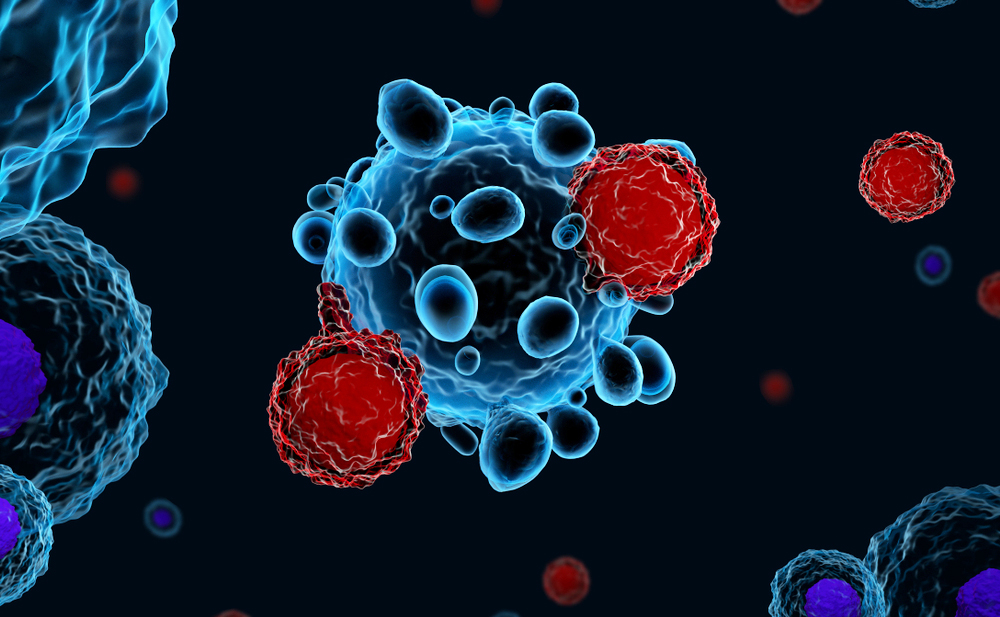Lecia Sequist, MD, MPH, is leading the charge for early cancer detection. As director of the Center for Innovation in Early Cancer Detection (CIECD) at Massachusetts General Hospital Cancer Center, Dr. Sequist knows that while new and better cancer treatments are helping many patients, far more would benefit if cancers could be found earlier. That’s why she is building a network of cancer researchers, molecular scientists and bioengineers to innovate new cancer detection technologies. She recently discussed the center’s work.
There’s a lot of excitement now about developing technologies that detect cancer. It’s an important sea change.
What’s new in early cancer detection?
The last decade of cancer research has focused on therapeutics — the development of drugs to treat cancers. And that’s good. It’s made a huge difference in people’s lives. But to cure more people, we need to find cancer earlier.
There’s a lot of excitement now about developing technologies that detect cancer. It’s an important sea change. There are only four types of cancer that have a proven screening test. We have mammogram for breast cancer, the Pap test for cervical cancer, colonoscopy for colon cancer and we have a new CT scan for lung cancer. But there are a couple hundred types of cancer. There’s so much room for improvement.
Why did you decide to focus on early cancer detection?
I’ve been an oncologist for quite a while and I mostly see patients with advanced disease. I have to tell a lot of people that, unfortunately, “There’s nothing we can do to cure your cancer.” We’re going to treat it. We’re going to fight very hard. But still, when the patient’s cancer is metastatic, we still have to say, “I’m sorry, we can’t cure you.” That’s why I decided I wanted to focus on finding new ways to detect cancer earlier when it is more treatable – to help change those conversations in the future.
What is your personal inspiration for this work?
I’ve seen the difference that early detection can make in my own family. My father was diagnosed with metastatic gall bladder cancer in his 50s. There is no early screening test for gall bladder cancer. He went through some treatments, but he died relatively young, just after my first child was born.
Then my mother, a couple of years ago, had a routine mammogram. She had breast cancer, but it was caught very early. She was treated with surgery and some hormone pills. She now has a very good prognosis. I see the same kind of story playing out in my lung cancer patients where, thanks to our new CT scan for pulmonary nodules, we’re catching lung cancer earlier when it can be successfully treated.
Contributions from philanthropic donors are already helping and we need more.
How is your center, the CIECD, improving early detection?
We’re trying to encourage collaborations, to bridge the clinics where our patients are being treated, including healthy patients in primary care, with the researchers who work on early detection. We’re also building the infrastructure that will make it easier for these early detection studies to happen. A lot of the existing infrastructure supports clinical trials for drug development. There hasn’t been a lot of focus on doing clinical trials for cancer detection.
So, for example, we’re setting up a new protocol with the institutional review board (IRB) which reviews research proposals. Typically, the review can take between 6 and 12 months. With this new protocol, if you come to me with a cool new idea and you want to get your hands on some patient samples to test it, we’ve already got an IRB-approved protocol in place and ready to go. You don’t have to start from scratch. Mass General is uniquely positioned to do this because of our location at the epicenter of Boston medical and biotechnology research and our ongoing work with thousands of patients.

What early cancer screening technologies are under development at Mass General?
One of the most accessible types of testing that you can do is blood testing, sometimes called liquid biopsy. It’s much easier and less risky than taking a tissue biopsy and you can do it annually and monitor patients over time. For example, we are looking for tumor cells circulating in the blood that can identify cancer. We’re also looking at proteins in the blood that provide a kind of fingerprint or evidence that can tell us where a tumor is located and whether it’s malignant or benign. We’re also looking at urine-based and breath-based diagnostics and we’re using artificial intelligence to improve our ability to detect very early cancers through imaging, starting with mammography and CT scans.
How can philanthropy help?
Contributions from philanthropic donors are already helping and we need more. They support the all-important pilot studies that generate the first set of data. It’s incredibly hard to get a grant from the National Institutes of Health or elsewhere to cover an idea that hasn’t even started yet. Many of our new technologies are under development but we are not yet using them in patients. So, our center helps by providing the philanthropic funding needed to move forward these early cancer detection pilot studies.
To learn more about how you can support early cancer detection research at Mass General, please contact us.






